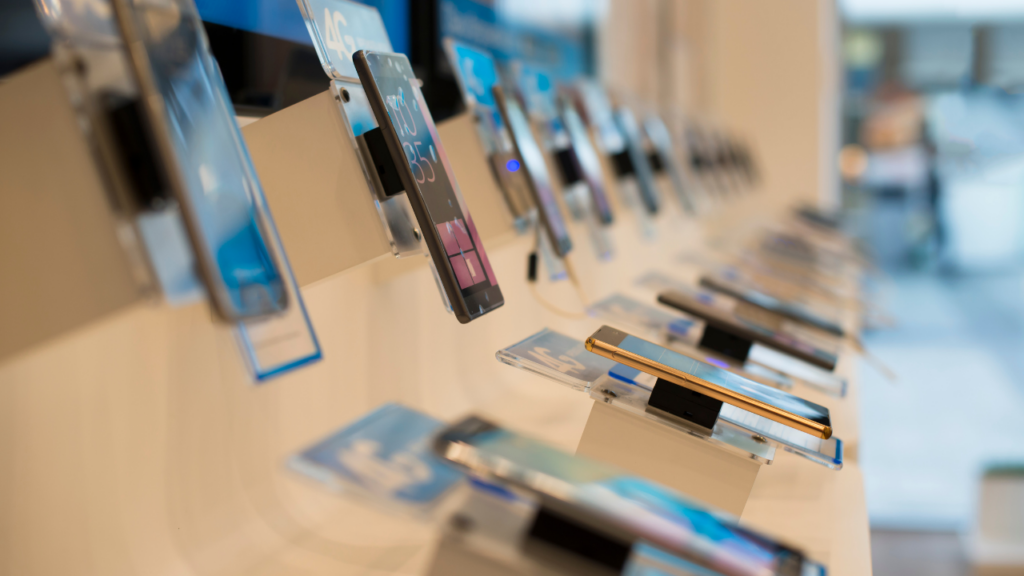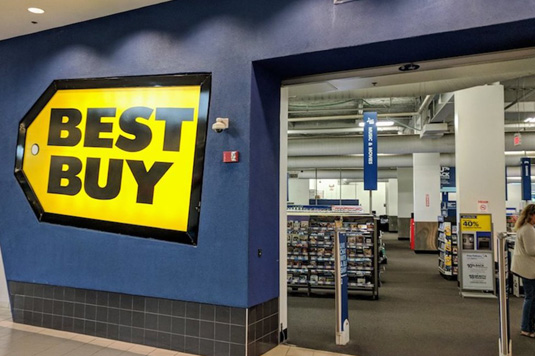Samsung US Supplier

Samsung US Supplier Strategy
Samsung is a globally-recognized technology company known for their cutting-edge devices. These include consumer and industry electronics such as TVs, smartphones and tablets; in addition to being recognized for their advanced technology and commitment to quality.
Samsung employs a supply chain strategy centered on localization and automation in order to better serve their customer’s needs.
Samsung’s supply chain strategy
Samsung employs an innovative supply chain management strategy that helps it compete effectively with competitors in the consumer electronics industry. This approach prioritizes creating an efficient and sustainable supply chain capable of quickly delivering products at competitive prices while simultaneously cutting operational expenses and decreasing inventory levels, all the while increasing profits while mitigating risk and keeping prices affordable for its products.
Samsung begins their supply chain management by selecting suppliers. This involves assessing them on various aspects such as environment, health and safety, labour and human rights practices and eco-partner status. Their selection process involves on-site assessments, regulatory compliance verification and affirmation of human rights practices as well as competition relative to their operational territories. As a result of such rigorous screening, Samsung can confidently publish a list of its suppliers.
Production and assembly processes for Samsung products are an integral component of its supply chain, taking place either in Gumi, Korea or various facilities in China and Vietnam. As labor costs in China continue to increase, production could shift more toward Vietnam at the expense of some current suppliers – for instance Japan-based Alps Electric, Rohm and Nitto Denko didn’t make Samsung’s latest supplier list.
Samsung takes great pride in cultivating strong relationships with its suppliers, working together with them to improve productivity and quality. This can be accomplished via training or incentive programs; additionally, Samsung provides access to its research and development teams so suppliers can access new technology or processes more easily.
Samsung’s localized supply chain strategy
Samsung’s supply chain strategy is key to its success, featuring an innovative system that ensures their products are manufactured quickly and cost-effectively while remaining at competitive pricing. They employ various techniques for accomplishing this goal – risk management among them – which contribute to this goal.
Samsung Electronics is one of the world’s premier producers of electronic devices, from digital media devices and semiconductors to memory chips and memory storage solutions. Boasting one of the strongest global presences and an outstanding market share and revenue, they remain at the forefront of industry.
As a top global player, Samsung recognizes the need to keep costs low in order to remain competitive in its market. Therefore, they rely on localized supply chains in order to lower risk and ensure profitability – this allows the business to respond swiftly and meet customers needs more effectively.
This strategy has proven its worth time after time; however, it must be kept in mind that many factors influence its success; for instance, product quality can significantly impact a supplier’s ability to meet commitments.
Samsung has implemented various initiatives to combat its supply chain challenges and mitigate associated risks, including creating risk management systems, reducing inventory levels and increasing flexibility. Through these measures, they have been able to provide exceptional customer service.
The company has implemented a tracking system for tracking supplier performance, enabling it to detect any problems quickly and implement solutions immediately. Furthermore, all suppliers are treated fairly. Lastly, they require them to adhere to local labor laws.
Furthermore, the company employs an effective system for identifying prospective suppliers and conducting background checks on them. Furthermore, employees travel around different countries conducting visits to factories to assess whether or not they comply with labor laws.
Samsung’s automation strategy
Samsung’s automation strategy involves the incorporation of smart home technologies into its devices. TVs and digital cameras, for instance, include microphones and speakers connected to cloud servers that allow voice control; appliances have sensors built-in that detect environmental changes and respond accordingly; while their e-commerce store provides an easy user interface with clear product categorization and thorough descriptions.
Samsung is a global leader in consumer electronics, semiconductors, telecommunications and digital media. Established in 1969 and currently employing more than 266,000 worldwide, its flagship products include mobile phones, tablets, computer monitors televisions and printers – as well as technology used across industries like medical, aviation and military use.
Samsung’s flagship smartphone, the Galaxy S4, has received mixed reviews from consumers. Yet despite these mixed opinions, consumers continue to buy the phone in droves despite negative sentiment analyses from reviewers. Samsung has increased marketing efforts in an attempt to increase sales and build market share.
Samsung in the US is focused on strengthening its brand image through innovative, creative advertising and digital campaigns that use social media, influencer marketing and retail promotion strategies to reach target customers. It has implemented strategies such as using influencer marketing via social media channels such as YouTube to reach its intended audiences more directly.
Samsung stands as one of the world’s premier Asian companies and one of the leading suppliers of electronic components. Their semiconductor business accounts for an important share of annual revenues; their manufacturing facilities can be found around the globe; in addition, Samsung also provides IT and telecom services for their customers.
Recently, Samsung published a list of its suppliers following a chip shortage. While not reducing components supplies or altering its list to reflect this new reality, BOE (Chinese supplier) was removed from its overall panel supplier roster list to reflect this new reality.
BOE has long been one of the primary suppliers for OLED displays used in Samsung’s premium smartphones. Boe has developed an outstanding reputation for quality and innovation; however, their supplier status is under threat from other Chinese suppliers who face stiffer competition in providing necessary components to Samsung. This poses a real issue to them both and Samsung as an entire entity relying heavily on them as part of its supply chain.
Samsung’s focus on quality
Samsung has made quality the cornerstone of their strategy to become the world’s premier technology company. Their multidisciplinary team comprises designers, engineers, ethnographers, musicians and writers who research users’ unmet needs and identify cultural, technological and economic trends that will direct future product developments at Samsung. Their teams help the company develop products with superior consumer value – this approach has led to numerous breakthroughs within electronics such as the development of the phablet.
Samsung has also worked to establish stronger relationships with their customers by revamping its customer experience program, moving away from an old model of breaking, fixing, and moving on. Their new approach centers around cultivating customer loyalty by offering outstanding service that keeps customers coming back over time.
Samsung has enhanced its relationship with customers by providing various warranty options, enabling them to tailor each warranty plan to meet the unique needs of individual customers. Furthermore, they have implemented training and support programs for employees so that any questions or issues can be quickly and efficiently answered – this makes it easier for customers to get the most out of their devices.
Samsung employs an efficient supply chain strategy in order to remain a formidable smartphone competitor. Their immense facilities for assembling components can help the company cut costs by bulk purchasing. Furthermore, they have strong partnerships with suppliers like Sunny Optical who supply these key components.
Samsung must continuously innovate its products and market strategies in order to remain successful, having already overtaken Sony in several areas and expanding rapidly around the globe. Thanks to its vast product offering, its global success can be realized faster than other brands while its culture of fast paced development allows it to overcome many of SONY’s flaws.
Step-by-step training on how to sell to retail chains!
We explain exactly how to do that and how to get started today. I’ve taught over 100,000 of companies over the years across the globe on how to get your products to the stores. And so we’re here to support you. Or please subscribe to our Youtube channel and or be on the lookout for additional training that we create.
We are here to expedite the process of generating revenue with your physical products and that’s what we’re all about. Take a look at our advanced training, live events, certification programs and so much more.
In this training, I will discuss some of the things to think about when approaching a retailer to sell your products and become a vendor. Hope it helps! 🙂
Karen Waksman,
Retail MBA
Questions? Contact Us!
1-855-Retail-2 (Call or Text)
Email: info@retailmba.com
Retail MBA provides a step-by-step formula on How to Sell to Major Retailers, Online Retailers, Smaller Retailers, Catalogs and More. No Experience Required! These solutions continue to convert for clients year-over-year! These are Time-Tested and Proven Strategies that we utilize ourselves when going after stores! Everything we teach, we test. Want access to these formulas? ANY one of our programs and coaching systems gives you access to them now. With that said…
Here are 5 Easy Ways to Work with Us:
1) Free Training – If You Would Like to Join Our Next FREE Webinar Training Called “Retail Chain Store Secrets – How to Sell to Major Retail Chains. No Experience Required” Then Sign Up NOW To Learn All About Selling into Retail Chains By Clicking Here!
2) Retail MBA Year Long Coaching and Training System – Our Year Long Coaching and Training System with Karen Waksman is POWERFUL! This is our most popular training and coaching system! We walk you through how to approach, pitch and sell to retail chains and we coach you along the way! Join us by Clicking Here!
3) Masterclass Intensives – Want to Join our Next 4 Week Elite Retail MBA Masterclass Intensive? These Intensives Are EPIC for people who Love Fast Paced Learning – Homework, Retail Coaching, Developing Your Strategy, Buyers Contacts and More! These Events Are Held Every Quarter. Join us by Clicking Here!
4) Done-for-You Program – If You Want Karen Waksman and Her Team to Reach Out to Your Top Dream Retail Chains On Your Behalf – And You Have a Retail-Ready Product, Check Out our Epic Done-For-You Service by Clicking Here!
5) In Person Events – If You Want to Learn LIVE and Meet Karen Waksman in Person at Our Next “America’s Next Retail Product: LIVE Event with Other Like-Minded Individuals in Beautiful San Diego, CA! We Would LOVE to Have You Join Us by Clicking Here!
Check Out Our Additional Blog Posts Here:

Retail Terms
Retail Terms – What are the payment terms typically offered by retail chains? Click Here to Learn More!

Retail Vendor
Retail Vendor – What are the common mistakes to avoid when selling to retail chains? Click Here to Learn More!

How to Sell Your Holiday Products to Retail Chains
New Training on How to Sell Your Holiday Products to Retail Chains


Ulta Beauty Vendor
Ulta Beauty Vendor – How to Sell to Ulta Beauty Stores. Click Here to Learn More!

Retail Strategy
Retail Strategy – How do I handle negotiations with retail chains? Click Here to Learn More!


